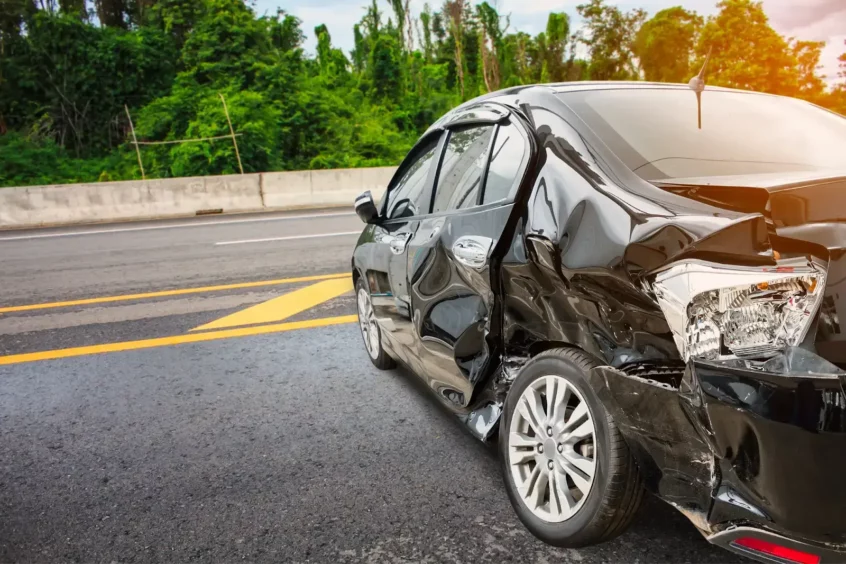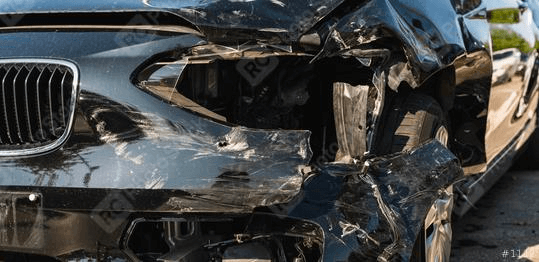What Happens If You Crash a Financed Car with Insurance?

In the bustling city of Branson, Missouri, situated amidst the picturesque Ozarks, the unforeseen can sometimes occur, including automobile accidents. Whether you’re driving along the stunning scenic routes or navigating through the city’s streets, accidents, unfortunately, are not uncommon. What happens when you’re involved in a car crash with a financed vehicle, even with car insurance coverage, in Branson, MO? This blog aims to shed light on the potential outcomes and procedures in such a situation.
-
Initial Steps After a Car Crash
In the moments immediately following a car accident, emotions run high, and it’s crucial to prioritize safety above all else. The initial step is to assess everyone involved for injuries. If anyone is hurt, seeking medical attention should be an immediate priority. Even seemingly minor injuries should not be ignored, as they could manifest into more significant issues later on.
Once safety has been ensured, it’s imperative to contact the authorities promptly, irrespective of the accident’s severity. Reporting the accident to law enforcement is not only a legal requirement in many places, including Branson, MO, but it also establishes an official record of the incident. Law enforcement officers will arrive at the scene to assess the situation, document details, and create an accident report. This report becomes an essential piece of documentation for insurance claims and legal proceedings, if necessary.
While awaiting the arrival of law enforcement, it’s advisable to move vehicles to a safe location, if possible, to prevent further accidents or traffic congestion. However, if there are injuries or if moving the vehicles might cause more harm or disrupt the accident scene’s integrity, it’s best to leave them in place until the authorities arrive.
Additionally, gathering information from the other parties involved is crucial. This includes exchanging contact details, and insurance information, and capturing photographs of the accident scene, including any damages to vehicles and the surrounding environment. These details become vital when filing insurance claims and can assist in determining fault or liability in the accident.
In essence, the moments following a car accident in Branson, MO, demand a focused and methodical approach. Prioritizing safety, promptly reporting the incident to authorities, and gathering pertinent information can significantly ease the subsequent insurance claim process and potential legal procedures, ensuring a more comprehensive and accurate resolution of the unfortunate event.
-
Insurance Coverage and Reporting the Accident
Having auto insurance coverage on a financed vehicle is a standard requirement imposed by most lenders. In Branson, MO, this stipulation ensures that in the event of an accident, the vehicle—considered collateral for the loan—is adequately protected. Once the accident has been reported to law enforcement, the immediate next step is to promptly notify your insurance provider.
Understanding the specifics of your insurance policy is crucial. Policies typically encompass various types of coverage, such as liability, collision, and comprehensive coverage. However, the applicability and extent of coverage depend entirely on the terms and conditions outlined in your policy agreement.
Liability coverage generally handles expenses incurred due to damages or injuries caused to others in an accident where you are deemed at fault. Collision coverage typically applies to the costs associated with repairing or replacing your vehicle in the event of a collision, irrespective of fault. Comprehensive coverage, on the other hand, often covers damages resulting from non-collision incidents like theft, vandalism, or natural disasters.
When filing a claim with your insurance provider following an accident involving a financed vehicle, it’s essential to provide accurate and comprehensive details about the incident. This includes sharing the police report, photographs of the accident scene, and any other relevant information requested by your insurer.
Understanding the nuances of your insurance coverage and promptly informing your insurance company post-accident are pivotal steps in ensuring a smooth claims process. Being well-versed in your policy’s coverage specifics empowers you to navigate the aftermath of a collision involving a financed vehicle in Branson, MO, with greater confidence and clarity.
-
Filing a Claim and Assessing Damages
Following an accident involving a financed vehicle in Branson, MO, the procedure typically includes initiating a claim with your insurance provider. This involves furnishing comprehensive details about the incident and submitting necessary documentation. These documents might encompass the official police report documenting the accident’s specifics, photographic evidence capturing the scene’s details, and relevant information regarding any other parties involved, if applicable.
In scenarios where the financed vehicle sustains significant damage, the insurance company will undertake an evaluation. This assessment determines the extent of the damage and whether the coverage outlined in your policy applies. Depending on the severity of the damage and the scope of coverage, the insurance may cover the costs for repairs to restore the vehicle to its pre-accident condition. However, in more extreme cases where the expenses for repairs surpass the vehicle’s value, the insurance company might declare the car a total loss.
The insurance company’s decision regarding repair coverage or considering the vehicle a total loss hinges on various factors, including the extent of damage, the vehicle’s value, and the terms outlined in your insurance policy. Understanding these processes and the potential outcomes can aid in navigating the aftermath of a financed vehicle accident with greater clarity and informed decision-making.
-
Dealing with a Total Loss
In situations where the car is deemed a total loss, the insurance payout is typically based on the car’s market value minus any deductible. If the payout doesn’t cover the outstanding loan amount, gap insurance might help bridge the difference. Gap insurance covers the discrepancy between the car’s value and the amount owed on the loan.
-
The Role of Financing Companies
Financing companies hold a lien on the vehicle until the loan is paid off. In the event of an accident, they might be involved in the insurance claim process, particularly if the car is considered a total loss. The insurance payout is often directed to the financing company to settle the outstanding loan amount.
-
Potential Legal Ramifications
If the accident results in injuries or disputes arise regarding fault, legal matters might come into play. It’s advisable to seek legal counsel to navigate complex legal procedures and protect your rights.
-
Impact on Insurance Premiums
Being involved in an accident, especially if deemed at fault, can impact your insurance premiums. The extent of the increase depends on various factors, including the severity of the accident and your insurance provider’s policies.
Conclusion
While Branson, MO, offers a captivating backdrop for scenic drives and exploration, car accidents can happen unexpectedly. Understanding the steps to take after crashing a financed car with insurance in Branson is vital. Promptly reporting the accident to authorities and your insurance company, understanding your policy coverage, and navigating the claims process can help mitigate the aftermath’s financial and legal implications.
Remember, seeking guidance from legal and insurance professionals can provide invaluable support during such stressful times. Being prepared and informed can significantly aid in handling the situation smoothly and responsibly.
Facing a financed car crash? Explore our comprehensive guide for Branson residents and ensure you confidently navigate the aftermath. Contact RIG powered by G&G Independent Insurance for personalized assistance.

